SKIN CONCERNS
What is Rosacea?
Rosacea is a common skin concern prevalent in two main age groups, late teens and mid 40 age group. Facial flushing, broken red blood vessels around the middle area of the face are common symptoms of Rosacea.
What is Rosacea?
Rosacea is a chronic skin condition characterized by facial redness, swelling, and sometimes pimples that resemble acne. People with rosacea often experience flare-ups, where their symptoms become more pronounced for a period before diminishing. Rosacea's cause is not fully understood, but it's thought to be related to vascular irregularities and possibly factors like genetics, environmental triggers, and microscopic mites found on the skin.
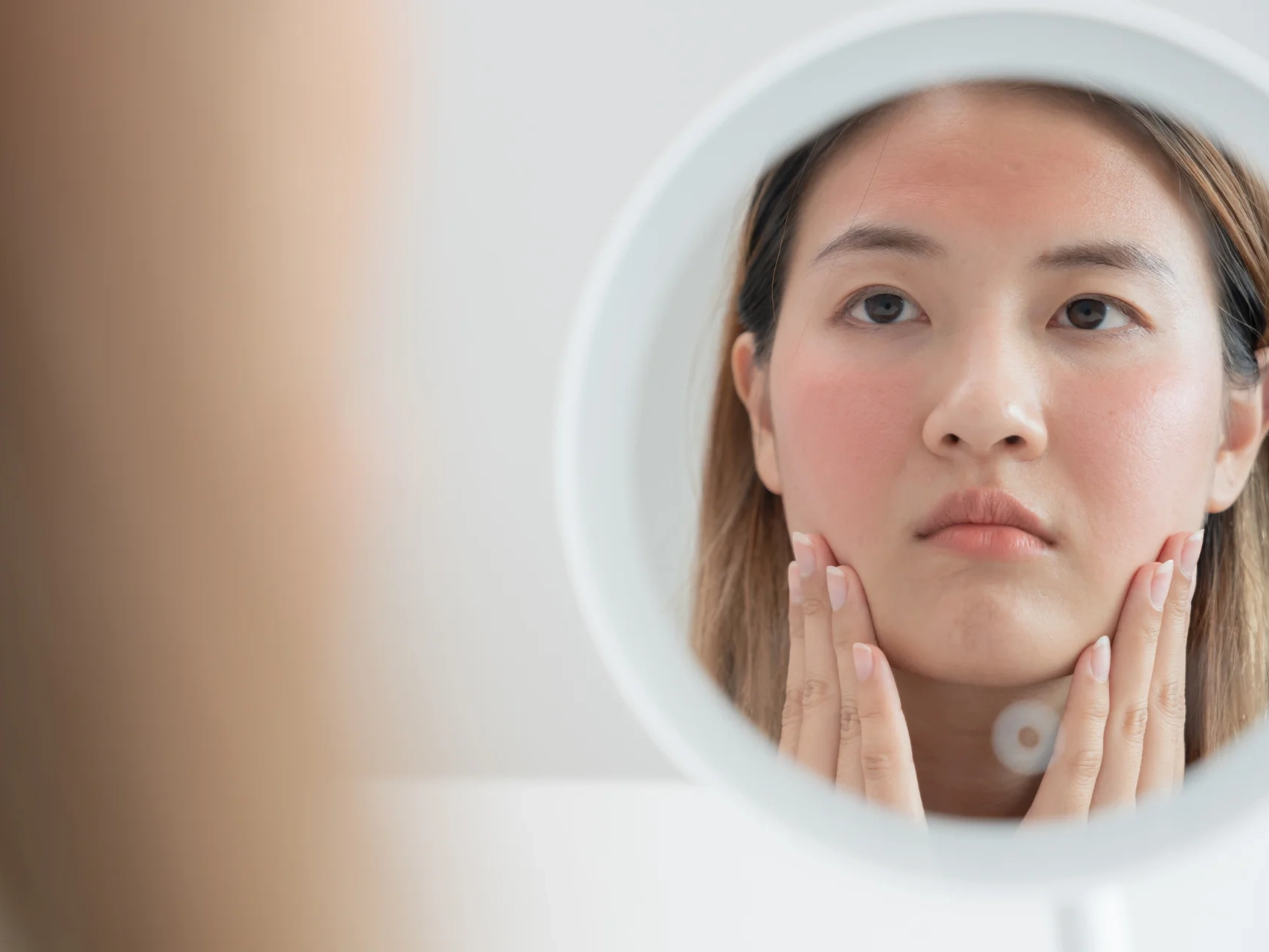
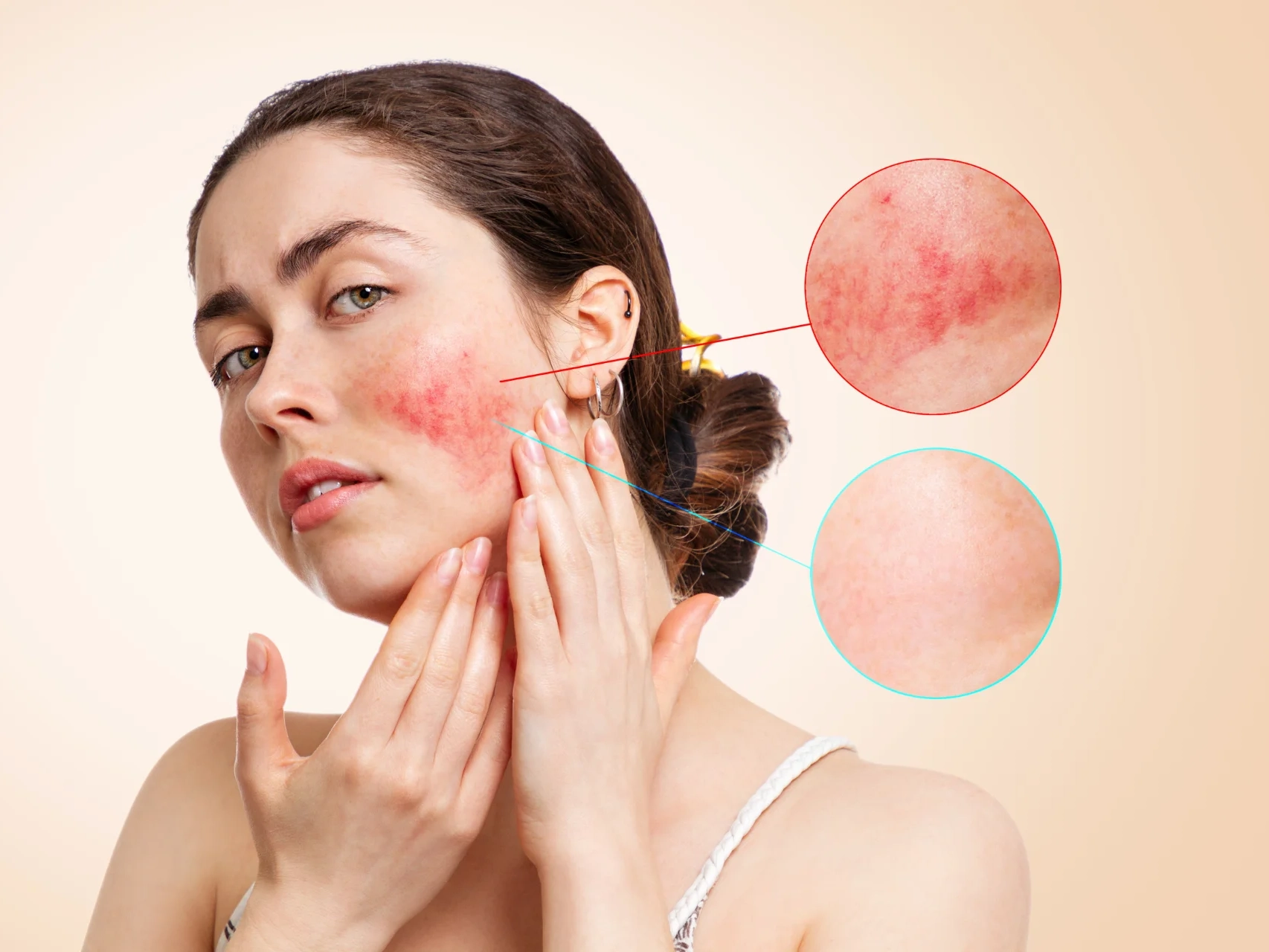
skin concerns
Are you affected?
This condition is notably more prevalent among women and individuals with lighter skin tones; however, it's important to note that when rosacea presents in men, the symptoms can often be more severe and challenging to manage. Rosacea's exact causes remain somewhat elusive, with researchers pointing to a combination of hereditary and environmental factors as potential contributors to its development. Furthermore, certain triggers, such as sun exposure, spicy foods, alcohol, and stress, are known to exacerbate the symptoms of rosacea, making the management of these triggers a crucial component of living with rosacea.
Get in touch today. Our team is ready to assist with your skin concerns!
Symptoms
- Redness and Flushing: Rosacea often starts with a tendency to blush or flush more easily than other people. This redness can spread beyond the nose and cheeks to the forehead, chin, neck, and chest.
- Burning or Stinging Sensation: When using water or skincare products, individuals with rosacea might feel a burning or stinging sensation on their skin, which is a common irritant response.
- Persistent Redness: Over time, the initial redness from flushing may become more persistent and visible, with the skin appearing red all the time.
- Visible Blood Vessels: Small blood vessels on your nose and cheeks often swell and become visible, presenting as tiny red lines under the skin.
- Swelling and Dry Skin: Parts of the face may swell, and the skin can become very dry, which may also feel rough and scaly.
- Acne-like Breakouts: Many people with rosacea develop pimples on their face that resemble acne. These bumps sometimes contain pus.
- Eye Irritation: Rosacea can cause eyes to feel irritated and appear watery or bloodshot, a condition known as ocular rosacea.
- Sore Eyelids or Blepharitis: The eyelids may become red, swollen, and studded with small scales or crusts, often leading to additional discomfort.
- Yellow-Orange Patches: Some individuals may notice yellow-orange patches on the skin, contributing to the skin’s uneven appearance and texture.
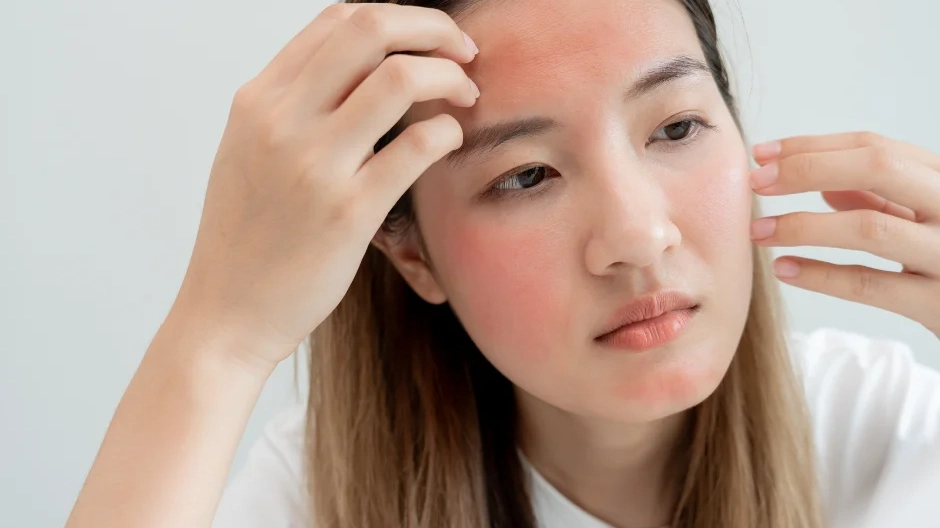
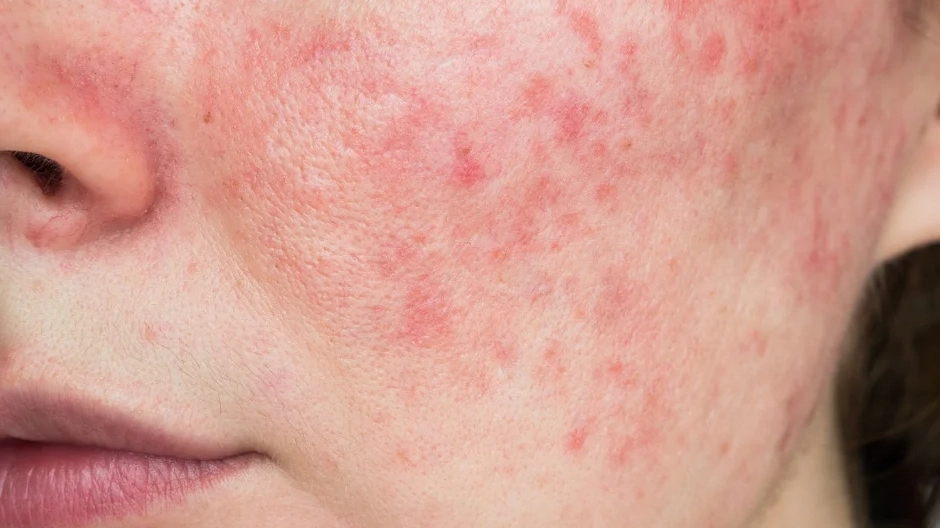
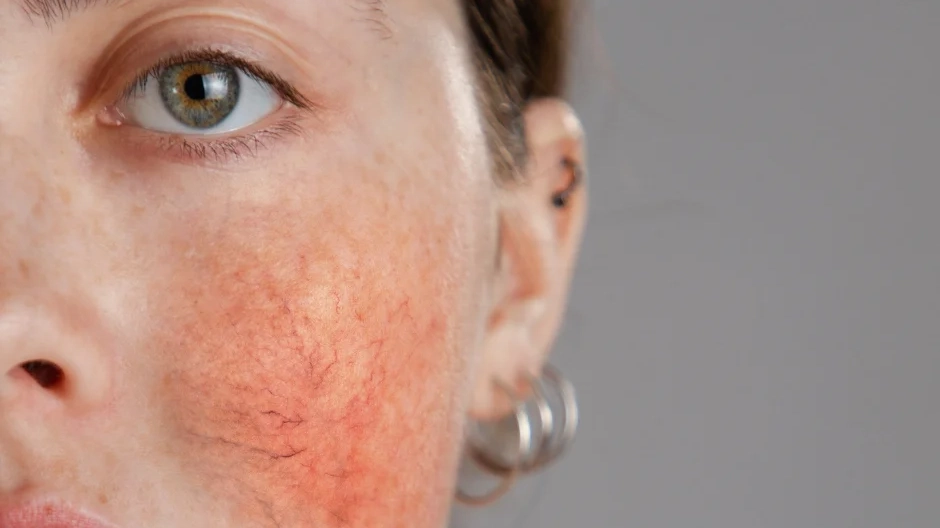
Identifying Some Triggers
Diet
- Alcohol: Consuming alcohol can dilate blood vessels in the skin, leading to a flushed appearance that can trigger or worsen rosacea symptoms. For individuals with rosacea, even small amounts of alcohol may prompt a flare-up.
- Spicy Foods: Spicy foods cause a similar reaction to alcohol in that they can dilate blood vessels, increasing blood flow to the skin and potentially triggering rosacea symptoms. People with rosacea often notice an immediate reddening of their skin after consuming spicy meals.
- Hot Drinks: The heat from hot beverages can cause rosacea to flare by inducing facial flushing. This is due to the warm temperature’s effect on blood circulation and vessel dilation in the face.
Lifestyle
- Aerobic Exercise: While exercise is beneficial for overall health, intense aerobic activities like running can increase body temperature and blood flow, leading to rosacea flare-ups. Moderation and cool-down strategies are essential for those with rosacea.
- Hot Baths or Saunas: Similar to the effect of hot drinks, the heat from hot baths, showers, or saunas can cause significant flushing and exacerbate rosacea symptoms. The warmth increases blood flow to the skin, potentially triggering a rosacea flare-up.
Emotional Well-being
- Stress: Emotional stress is a well-known trigger that can exacerbate rosacea symptoms as well as have direct affect on your skin. Stress induces a response in the body that can lead to inflammation and flare-ups, making management of stress crucial for individuals with rosacea.
Environment
- Sunlight: Exposure to sunlight is a primary environmental trigger for rosacea. UV radiation can cause damage to the skin, leading to inflammation and exacerbating the symptoms of rosacea. Sun protection is vital for those with the condition.
- Hot or Cold Temperatures: Extreme temperatures can affect rosacea by stressing the skin. Hot weather can induce sweating and flushing, while cold conditions can lead to dryness and irritation, both of which can aggravate rosacea symptoms.
Frequently Asked Questions
What triggers rosacea flare-ups?
Common triggers include sun exposure, extreme temperatures, hot drinks, spicy foods, alcohol, stress, and certain skincare products.
Can rosacea be cured?
Currently, there is no cure for rosacea, but its symptoms can be managed and controlled with proper treatment and lifestyle adjustments.
How is rosacea diagnosed?
Rosacea is typically diagnosed based on its appearance and by ruling out other possible skin conditions. A dermatologist may perform this diagnosis.
What treatments are available for rosacea?
Treatments include topical and oral medications to reduce inflammation and redness, laser therapy for visible blood vessels, and lifestyle changes to avoid triggers.
Is rosacea contagious or infectious?
No, rosacea is neither contagious nor infectious; it cannot be spread from person to person.
Can diet affect rosacea?
Yes, certain foods and beverages can trigger rosacea flare-ups in some people. Identifying and avoiding personal dietary triggers is a key part of managing the condition.
Will rosacea get worse with age?
Rosacea’s progression varies; for some, it may worsen over time without treatment, but with appropriate management, symptoms can be controlled.
Is there a link between rosacea and acne?
Although rosacea can have acne-like symptoms, it’s a distinct condition from acne. Treatments for the two conditions differ.
Can makeup worsen rosacea?
Certain makeup products can irritate the skin and exacerbate rosacea symptoms. It’s recommended to use non-comedogenic, gentle products specifically formulated for sensitive skin.
Does rosacea only affect the face?
Primarily, rosacea affects the face, but symptoms can also appear on the neck, chest, scalp, or ears in some cases.
Can stress cause rosacea?
While stress does not cause rosacea, it can trigger flare-ups or worsen existing symptoms for those with the condition.
How can I protect my skin if I have rosacea?
Protect your skin by using sunscreen daily, avoiding known triggers, using gentle skincare products, and seeking treatment from a dermatologist.
Is rosacea related to gut health?
Emerging research suggests a possible connection between rosacea and gut health, though more studies are needed to fully understand the relationship.
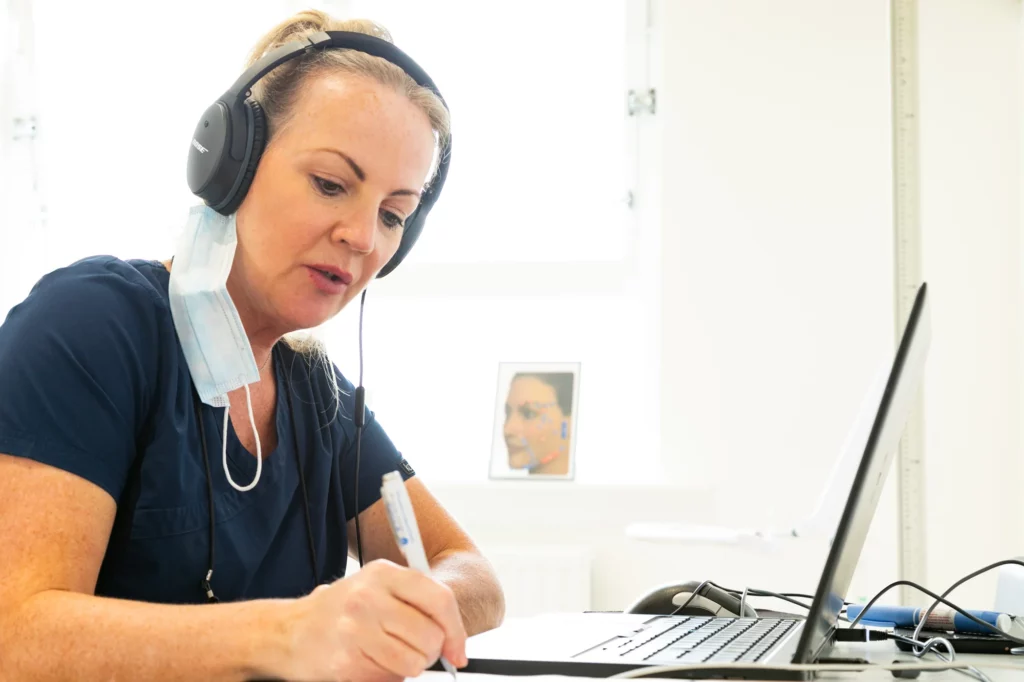
Rosacea Myths
Rosacea is simply a cosmetic issue.
Contrary to popular belief, rosacea is a chronic skin condition that goes beyond mere aesthetics. It can cause discomfort, emotional distress, and, in severe cases, vision-threatening complications. Understanding rosacea’s impact on both skin health and overall well-being is crucial.
Only fair-skinned individuals get rosacea.
While rosacea is more commonly diagnosed in people with lighter skin tones, it can affect individuals of any skin color. Symptoms might be less noticeable on darker skin, leading to underdiagnosis, but the condition is equally important to treat.
Rosacea is caused by poor hygiene.
This myth couldn’t be further from the truth. Rosacea is related to a combination of genetic, environmental, and vascular factors, not cleanliness. Adopting a gentle skincare routine recommended by FTT Skin Clinics can help manage symptoms without implying that hygiene is to blame.
Only topical creams are effective in treating rosacea.
While topical treatments play a crucial role in managing rosacea, a comprehensive treatment plan may include oral medications, lifestyle modifications, and laser therapy. FTT Skin Clinics tailors treatment plans to each individual’s needs, ensuring the most effective combination of therapies.
Rosacea is just adult acne.
Though rosacea can resemble acne with redness and pimple-like bumps, it’s a distinct condition with different triggers and treatment approaches. Unlike acne, rosacea doesn’t typically involve blackheads, and treatments focus on reducing inflammation and managing triggers rather than solely targeting acne bacteria.
Sunscreen isn’t necessary if you have rosacea.
On the contrary, sunscreen is vital for individuals with rosacea as sun exposure is a common trigger for flare-ups. Using a broad-spectrum sunscreen with an SPF of 30 or higher can help protect sensitive skin and prevent exacerbation of symptoms.
Rosacea is always easy to diagnose.
Diagnosing rosacea can be challenging, especially in individuals with darker skin tones or when symptoms overlap with other skin conditions. A thorough evaluation by a dermatologist is often necessary to accurately diagnose and effectively treat rosacea.
Men don’t get rosacea.
While rosacea is more prevalent in women, men can and do develop the condition. In men, rosacea can be more severe and is often underreported. Recognizing symptoms and seeking treatment is crucial for anyone suspecting they have rosacea, regardless of gender.
Consultation Available From
- Schedule your consultation today! A detailed skin analysis will set us on the path to uncovering the best version of your skin.
Products Starting From
- Explore our exclusive Sensitive Skin Collection, specially designed for rosacea.
How Can We Help?
We offer comprehensive support and treatment options for individuals dealing with rosacea, leveraging a blend of expert knowledge, advanced treatments, and personalized care strategies. Prior to any treatment you are looking to get, we would have to carry out a skin analysis to decide whether on the best treatment.
Plasma Shower is the process of removing all organic matter from the surface of an object through the use of an ionised gas called plasma.
Plasma shower stimulates the treated area showering and acting inside and outside the cell. It promotes sterilization and the ions induced by plasma reaches dermis and promotes the formation of new collagen and elastin, giving a fuller/healthier. Plasma breaks the Cell Adhesion Molecules (CAMs) that connect the skin cell and open the protective film of the skin temporarily to induce this amazing absorption.
Plasma Shower treatment fights rosacea by using plasma technology to deliver energy to the skin’s surface, which stimulates regeneration and healing processes without direct thermal damage. This method helps to reduce inflammation and redness associated with rosacea, promotes the production of collagen to strengthen the skin barrier, and enhances the skin’s ability to retain moisture. The gentle, non-invasive nature of a Plasma Shower makes it suitable for sensitive skin types and those struggling with rosacea, offering a way to alleviate symptoms and improve skin appearance with minimal risk of irritation.
Plamsa Kills the germs and bacteria by breaking down the bacterial molecular structure. It Dramatically increases the skin absorption rate by temporarily breaking the cell adhesion molecules (CAMS). Also Tightens the aged skin by balancing the membrane potential. Finally it stimulates the generation of collagen and fibroblasts by stimulating the circulation of water molecules and increasing the heat.
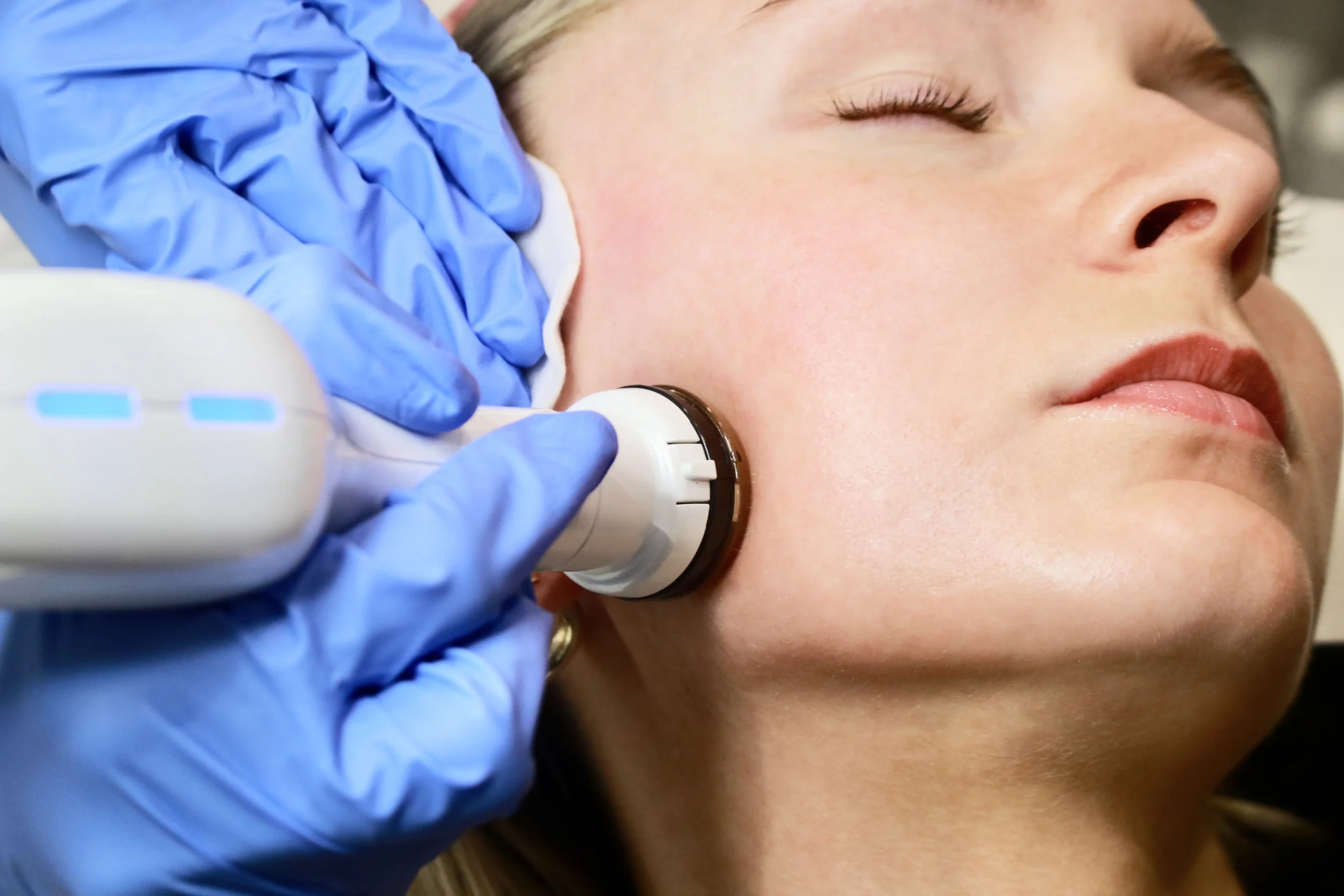
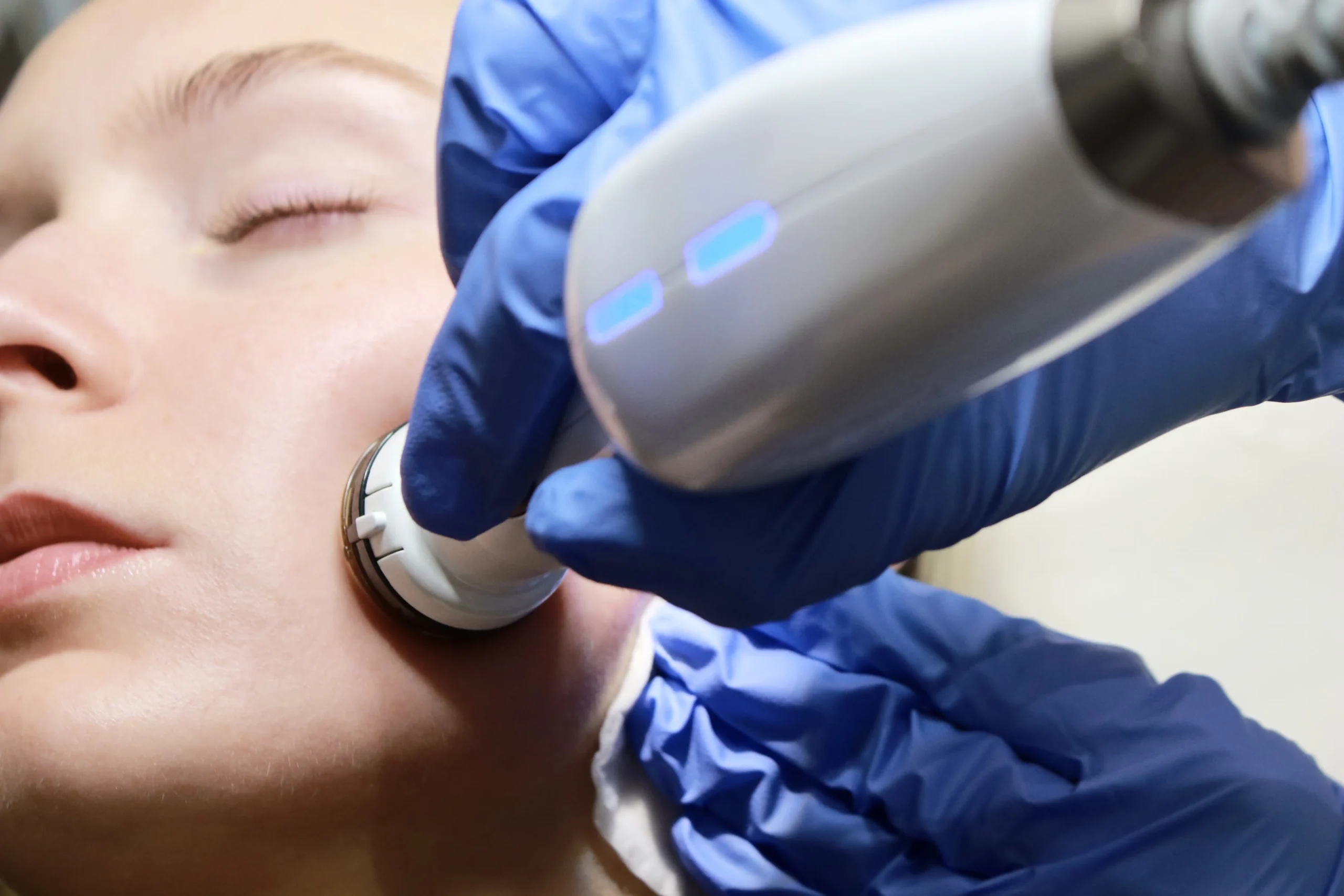
Treatment Time
30 Minutes
Visible Results
3-4 Weeks
Full Recovery
Immediate
Duration
3-4 Months
Sensitivity Time
2 Hours
Anaesthetic
Not Avaliable
Back to Work
Immediate
No. of Treatments
Not Avaliable
Hydrofacial is a multi-step facial treatment that gently cleanses, exfoliates, extracts impurities, and hydrates the skin using water-based solutions and suction, leaving it refreshed, nourished, and glowing.
The Hydrofacial treatment can be particularly beneficial for individuals with rosacea, thanks to its gentle, non-irritating approach that focuses on hydration and skin renewal. Here’s how Hydrofacial can be adapted and used for managing rosacea:
- Deep Cleansing and Gentle Exfoliation: The Hydrofacial begins with a lactic acid cleansing solution that exfoliates the skin without harsh scrubbing, making it suitable for the sensitive skin of rosacea patients. This gentle exfoliation helps to remove dead skin cells and impurities, promoting a smoother skin texture without triggering rosacea flare-ups.
- Hydration and Nourishment: Rosacea-prone skin often suffers from barrier dysfunction, leading to dryness and irritation. Hydrofacial’s hydrating antioxidant solution deeply moisturizes the skin, reinforcing the skin’s barrier and reducing the potential for irritation. This hydration is crucial for rosacea sufferers, as well-moisturized skin is less likely to react negatively to external stimuli.
- Anti-inflammatory Effects: The treatment includes the application of solutions with anti-inflammatory properties, such as salicylic acid for oily or acne-prone skin, which can also benefit rosacea by reducing inflammation and redness. Additionally, the antioxidant and nutrient-rich Hydro-essence applied during the treatment can help soothe the skin and reduce the appearance of redness associated with rosacea.
- Personalized Treatment Plans: We ensure that each treatment is tailored to the individual’s skin condition and needs. The initial skin scan assessment allows our skin experts to customize the Hydrofacial treatment, ensuring it addresses the specific concerns of rosacea without causing irritation or flare-ups.
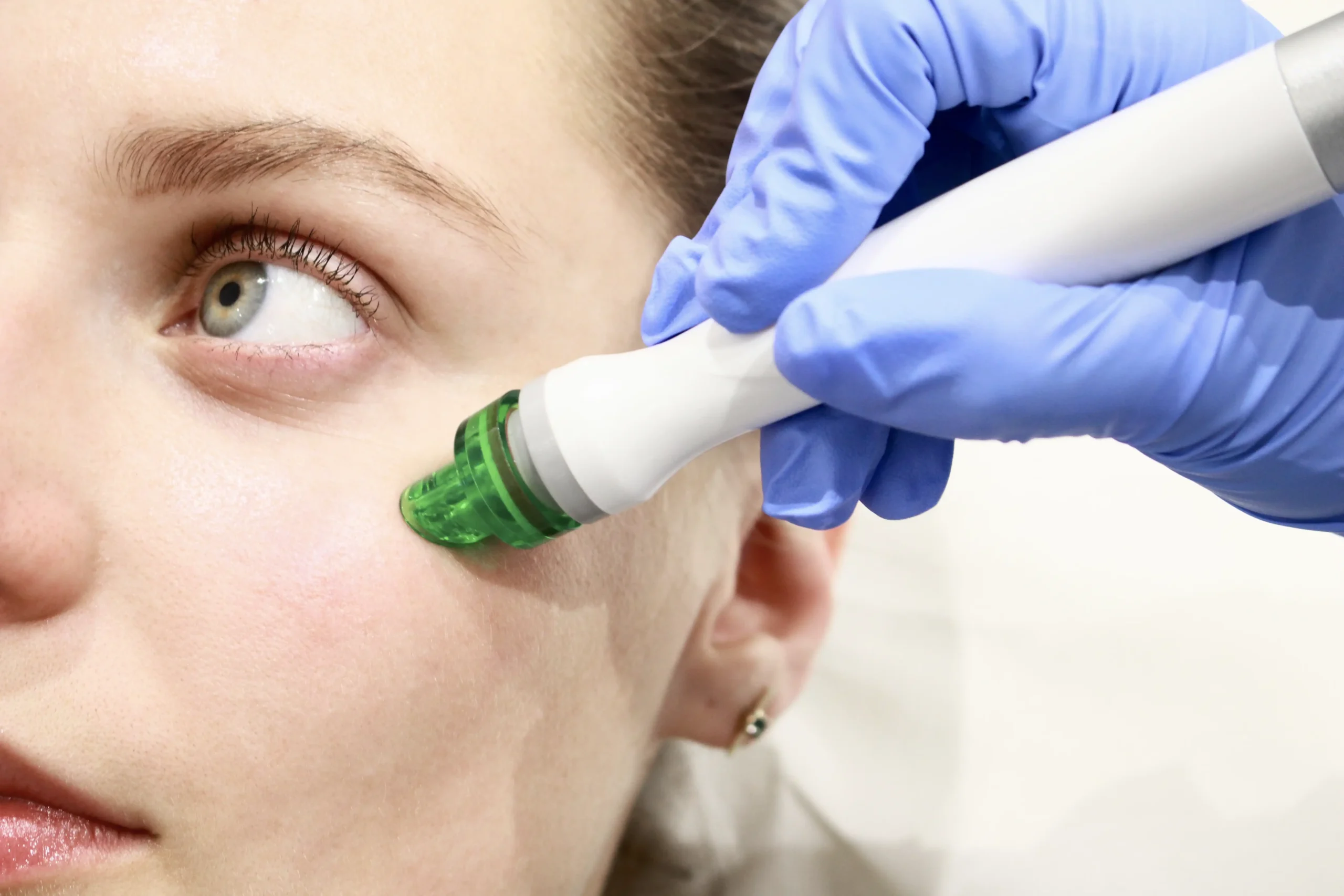
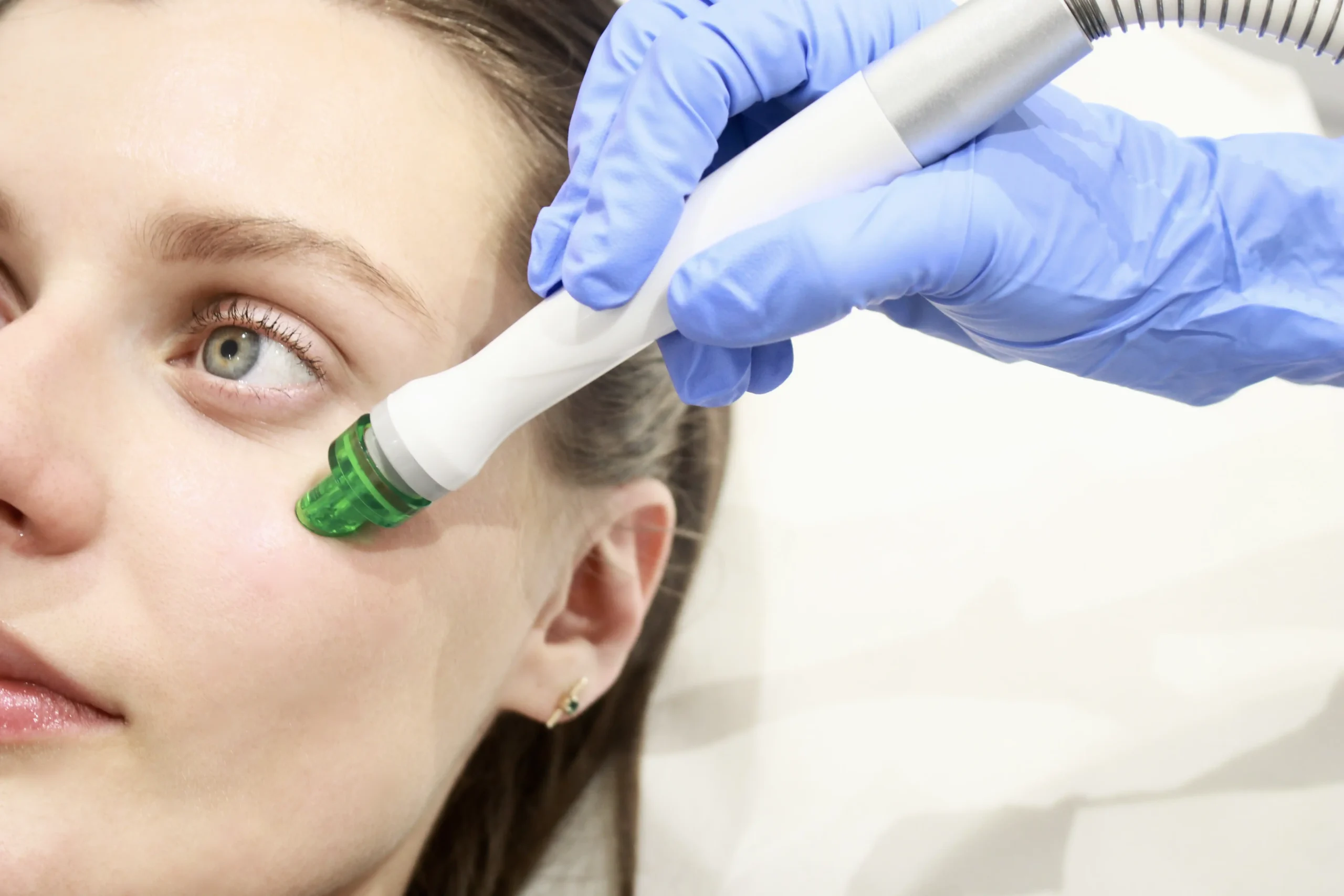
Treatment Time
30-90 Minutes
Visible Results
Immediate
Full Recovery
Immediate
Duration
3 Months
Sensitivity Time
Not Avaliable
Anaesthetic
Not Avaliable
Back to Work
Immediate
No. of Treatments
4 Times a Year
IPL Skin Rejuvenation uses intense pulsed light to address a variety of skin concerns, including hair removal, pigmentation, and vascular lesions. This treatment employs a broad spectrum of light, allowing it to target and treat multiple skin issues in one go, unlike laser treatments that focus on a single concern. A high-powered flash gun delivers these light pulses, offering a tailored approach to skin rejuvenation based on an initial skin concern.
IPL (Intense Pulsed Light) therapy is an effective treatment for managing symptoms of rosacea by delivering broad-spectrum light to the skin’s surface. This light targets the dilated blood vessels that contribute to the redness and flushing associated with rosacea. The heat from the IPL light works to reduce these vessels’ appearance, leading to a decrease in facial redness and improvement in skin texture. Additionally, IPL can help reduce inflammation and promote collagen production, further improving skin tone and reducing the appearance of rosacea symptoms. With a series of treatments, IPL offers a non-invasive option to help control rosacea, making it a popular choice for patients seeking to minimize the condition’s visibility and discomfort.
IPL therapy stands out as a versatile and non-invasive approach to treating rosacea, not only by addressing the visible symptoms but also by contributing to the long-term management of the condition. The technology behind IPL allows it to emit multiple wavelengths of light, making it uniquely capable of targeting the specific concerns associated with rosacea, such as persistent redness, flushing, and the visible blood vessels often seen in rosacea-affected skin.
IPL treatments are typically administered in a series, with each session building upon the last to gradually reduce the symptoms of rosacea. The number of treatments needed varies from person to person, depending on the severity of the condition and the skin’s response to the therapy. Most patients report minimal discomfort during the procedure and appreciate the relatively short recovery time, making IPL an attractive option for those seeking to manage their rosacea without significant downtime.
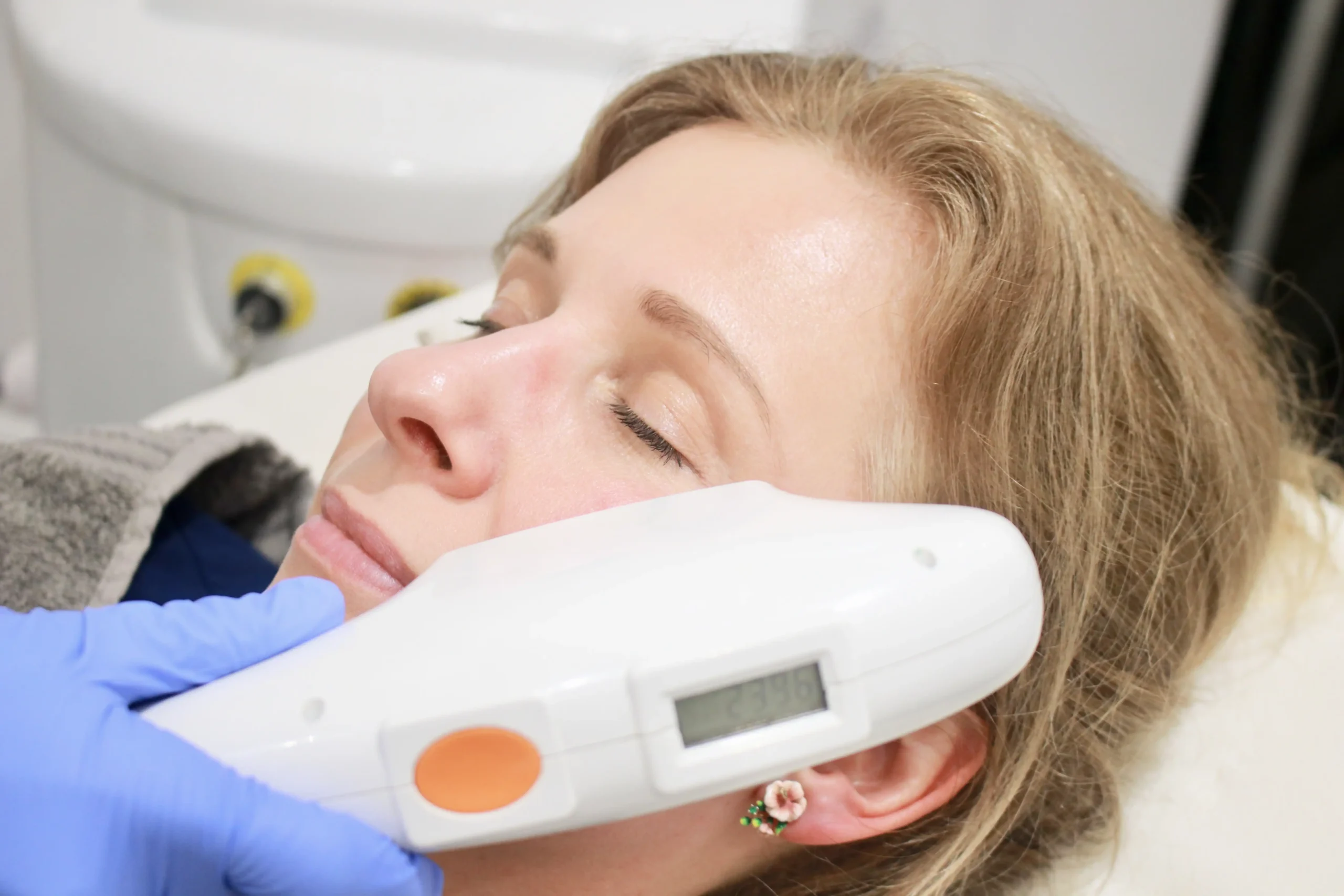
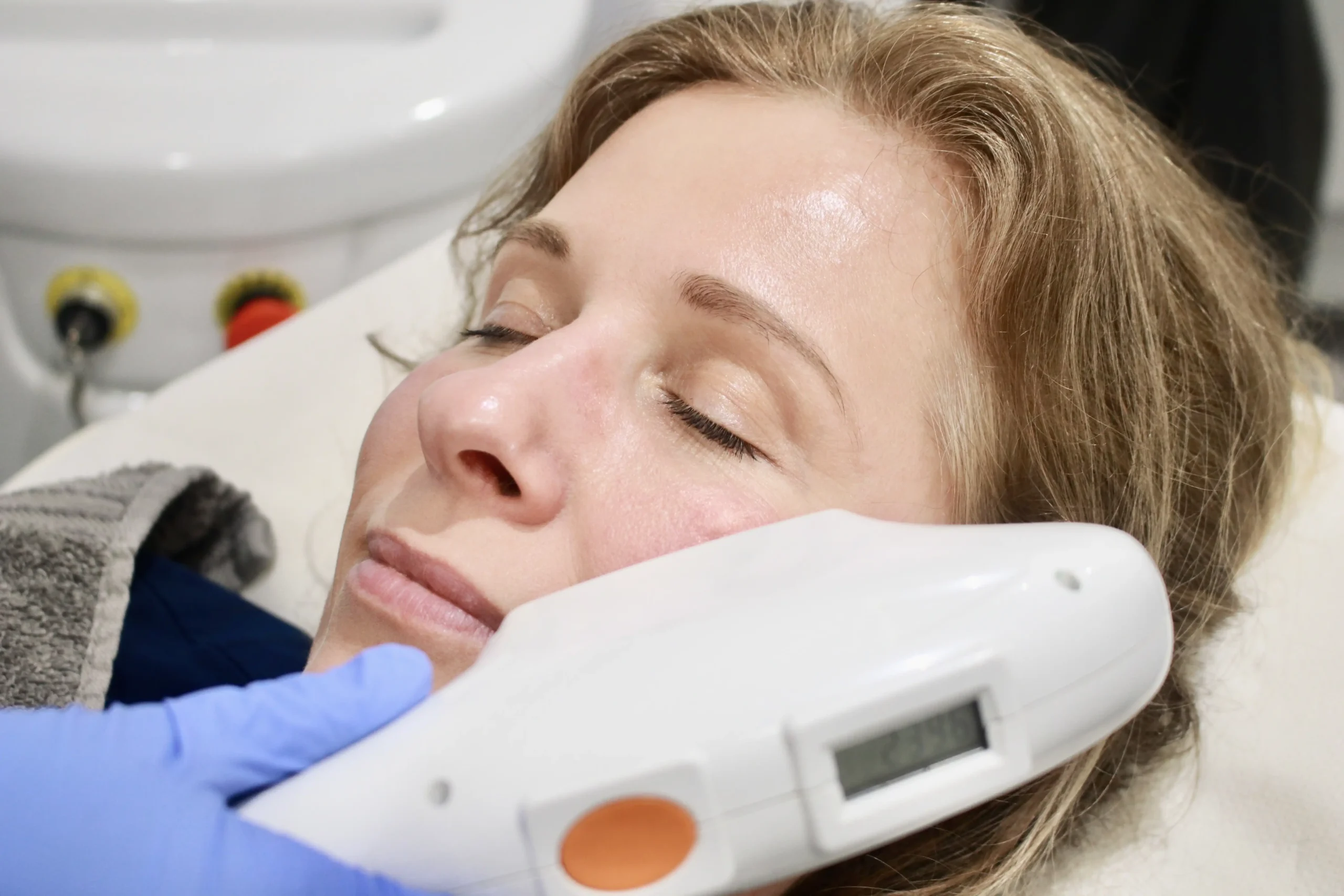
Treatment Time
30 Minutes
Visible Results
4-6 Weeks
Full Recovery
Immediate
Duration
1 Year
Sensitivity Time
Up to 48 Hours
Anaesthetic
Not Avaliable
Back to Work
Immediate
No. of Treatments
4-8
Electrolysis treatment is a permanent hair removal method that uses a fine needle to apply a small electrical current to each hair follicle, effectively destroying the growth cells and preventing future hair growth. It is recognized as the only FDA-approved method for permanent hair removal and can be tailored to treat any area of the body, making it a versatile option for individuals seeking a long-term solution to unwanted hair.
Electrolysis, recognized for its hair removal efficacy, can also play a role in managing mild rosacea symptoms, particularly when combined with the use of topical anaesthetics to alleviate discomfort during treatment. We embrace this innovative approach, providing patients with a more comfortable experience. Electrolysis targets individual hair follicles with electrical currents, offering a permanent solution to unwanted hair, which can be a concern for rosacea sufferers due to sensitive skin. The application of a topical anaesthetic before electrolysis ensures the process is as pain-free as possible, addressing the skin’s sensitivity, a common trait in those with rosacea.
Our holistic treatment options for rosacea go beyond hair removal, incorporating advanced skincare routines and treatments specifically designed to soothe and reduce rosacea symptoms. By utilizing a blend of treatments, including IPL for skin rejuvenation and targeted therapies for vascular lesions, We offer a comprehensive care plan for individuals with rosacea. These treatments focus on reducing the redness, irritation, and visibility of blood vessels associated with rosacea, providing clients with a clearer complexion and improved skin health.
We stand out for our commitment to personalized treatment plans. By assessing each client’s unique skin concerns, including rosacea, we ensure the most effective strategies are employed, whether it’s through electrolysis with topical anaesthetics for enhanced comfort or through specialized light therapies aimed at reducing the chronic symptoms of rosacea. Our tailored approach, grounded in the latest dermatological practices, underscores FTT Skin Clinics’ dedication to advancing skincare and patient well-being.
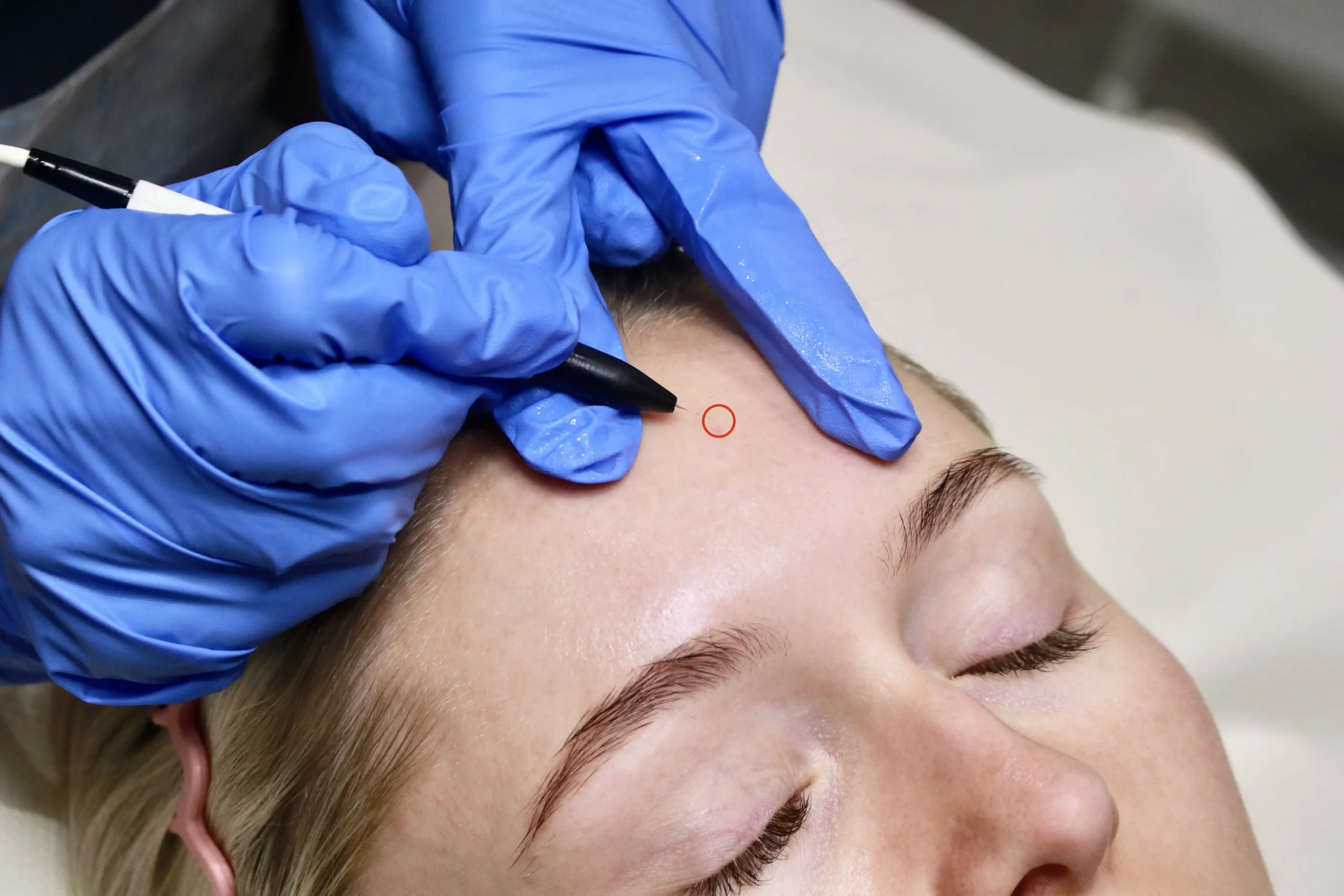
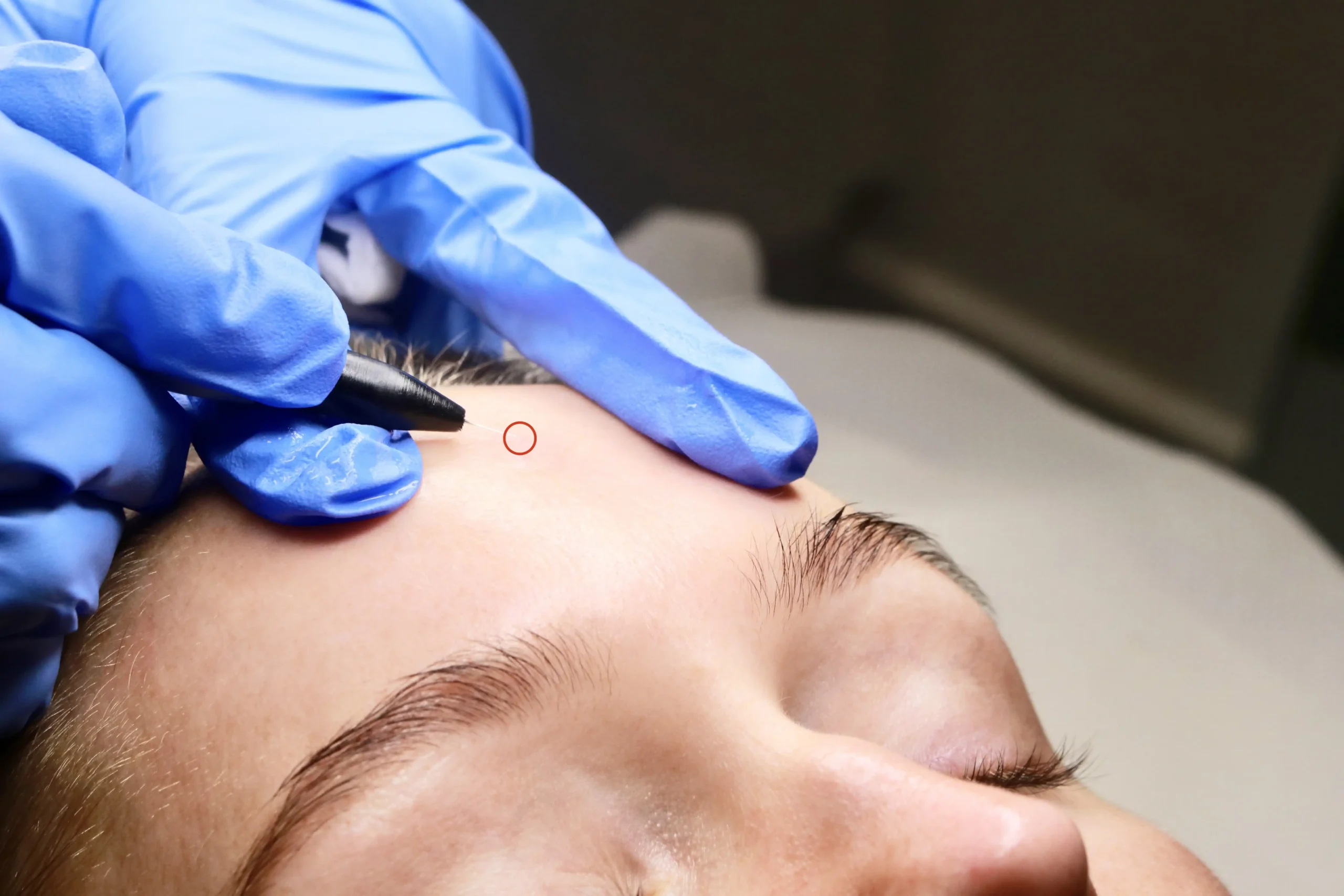
Treatment Time
30 minutes
Visible Results
Immediate
Full Recovery
2 days
Duration
1 year
Sensitivity Time
12 hours
Anaesthetic
Not avaliable
Back to Work
Immediate
No. of Treatments
Advised at Consultation
Discover MicroBotox for rosacea at FTT Skin Clinics, a revolutionary treatment using micro-doses of Botox to significantly reduce skin concerns without affecting facial expressions. Experience noticeable improvements in flushing, redness, and inflammation within a week, lasting up to three months. This advanced therapy also reduces sebum production and pore size, offering a smoother, more refined complexion.
Have you caught wind of FTT Skin Clinics’ latest offering, MicroBotox, specially tailored for rosacea? Imagine the groundbreaking approach of injecting just the tiniest amounts (yes, we’re talking about as minuscule as 0.05 cc) of diluted Botox directly into the skin. This genius method allows us to leverage the unparalleled benefits of Botox for your skin’s texture and tone, without impacting those expressive facial muscles we all cherish. With typical concentrations swirling around 1.4 to 2.5U/0.1 cc, it’s precision and efficacy combined.
But here’s the kicker for our rosacea warriors: MicroBotox comes to the rescue with its targeted, intradermal injections spaced ever so meticulously. Opting for about 8 to 15 units per cheek, the results speak for themselves. Just within a week, expect to see a dramatic reduction in the pesky trio of flushing, erythema, and inflammation, with the calm lasting up to a blissful three months. And the cherry on top? A noticeable decrease in sebum production, quieter sebaceous glands, and refined pores. Considering pairing it with Vbeam laser or IPL? At FTT, we say, “Why not?” Though, don’t be surprised if MicroBotox’s stellar performance has you questioning the necessity of laser at all. Welcome to the future of rosacea treatment, courtesy of FTT Skin Clinics.
Treatment Time
1 hour
Visible Results
24 hours
Full Recovery
Immediate
Duration
3 months
Sensitivity Time
12 hours
Anesthetic
Not avaliable
Back to Work
Immediate
No. of Treatments
4 times a year
At Home Rosacea Care Tips
At FTT Skin Clinics, we empower you with practical tips to manage rosacea and enhance the effectiveness of your skincare efforts. For those enduring the psychological impact of rosacea, seeking support and adopting a positive skincare mindset are essential steps towards healing both skin and self-esteem.
Complementing our clinic treatments, we offer a wide range of skincare products designed to enhance and prolong the effects of your professional sessions. Our experts can recommend products tailored to your skin type, ensuring a seamless transition between clinic treatments and at-home care.
Your At-Home Skincare Routine for Rosacea
We believe in empowering you with the knowledge and tools for effective at-home skincare. Our specialists provide guidance on incorporating at-home treatments into your routine, ensuring continuity between clinic visits.
At FTT Skin Clinics, our commitment extends beyond the clinic doors. We are dedicated to supporting you at every step, from in-depth skin analyses to personalized treatments and ongoing skincare guidance. Discover the transformative potential of our treatments and embrace the journey to clear, radiant, and healthy skin. Break free from rosacea cycle with our evidence-based treatments and dedicated support, guiding you towards confident skin.
Gentle Skincare Routine
Use a Gentle Cleanser: Opt for a mild, fragrance-free cleanser that won’t strip your skin of its natural oils. Cleansing your face once in the morning and once at night can help remove irritants without provoking rosacea.
Moisturize Daily: A fragrance-free, hydrating moisturizer can help strengthen your skin’s barrier, reduce dryness, and soothe irritation. Look for ingredients like niacinamide, which can help calm inflammation.
Apply Sunscreen: Sun exposure can trigger rosacea flare-ups. Use a mineral-based sunscreen with at least SPF 30 daily, even on cloudy days, to protect sensitive skin.
Be Mindful with Makeup: If makeup is part of your routine, opt for mineral or non-comedogenic products that won’t clog pores or cause irritation. Green-tinted foundations or concealers can help neutralize redness.
Lifestyle and Environmental Adjustments
Identify and Avoid Triggers: Keep a diary to track and identify what triggers your rosacea. Common triggers include hot foods, spicy foods, alcohol, caffeine, stress, and extreme temperatures.
Protect Against Extreme Weather: Both hot and cold weather can exacerbate rosacea. Wear a scarf or ski mask in cold, windy weather and seek shade and stay cool in hot conditions.
Avoid Harsh Skin Treatments: Skip abrasive scrubs, astringents, and any skincare products containing alcohol or other irritating ingredients. Always patch-test new products.
Eat a Balanced Diet: While food triggers can vary, a balanced diet rich in anti-inflammatory foods may help manage rosacea. Incorporate fresh fruits, vegetables, and lean proteins into your meals.
While these at-home care tips can significantly help manage rosacea, it’s important to consult with a dermatologist or skincare professional for severe or persistent symptoms. They can offer additional treatments and personalized advice to further soothe and improve your skin’s condition.
Remember, managing rosacea is about understanding your triggers, treating your skin gently, and making lifestyle adjustments to minimize flare-ups. With the right care and strategies, you can maintain healthy, comfortable skin.
Check out or Sensitive Skin Range products that can help with your symptoms.
